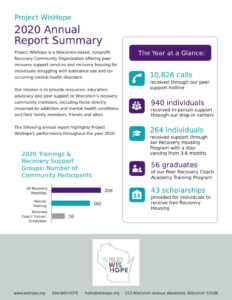Addiction takes a toll on the mind and body — namely, the digestive system. Gut health impacts overall well-being in numerous ways, many of which are still being studied and analyzed by scientists. Binging alcohol creates challenges for the digestive recovery of already-detoxed users. Furthermore, individuals in recovery may be prone to intense mood swings which are prompted by hunger or nutrient deficiency, sending panic signals to the brain.
Staying mindful of meal selection along with scheduling timely ingestion constructs a benchmark for the body to regulate cravings and operate at full potential. People in recovery typically lack necessary nutrients, particularly in the first year of recovery. The recovery process often leaves individuals seeking a replacement for their substance of choice, leading to a significant uptick in caffeine, sugar, and/or tobacco consumption. These substitutes — while they are improvements from alcohol and/or substance use — fail to provide the balance of nutrients necessary in a healthy diet or fully satisfy our hunger cravings. The goal is to introduce a conscious diet routine in hopes of nurturing long-term recovery and health.
HOW ADDICTION CHANGES GUT HEALTH
Alcohol and/or substance use alters the appetite and eating habits of addicted individuals, both psychologically and biologically. Metabolism typically increases, demanding a higher frequency of meals to sustain daily energy levels. Conversely, using alcohol and/or substances — with the exception of marijuana — usually interferes with hunger signals sent from the gut to the brain, stopping normal food cravings. This might especially be the case for those who are already prone to skipping meals. They may also elect to eat fast food or other unhealthy meals as a result of convenience or time restrictions imposed by job requirements.
Additionally, alcohol can cause lasting harm to the stomach, intestinal, and other digestive organ cells. This damage then inhibits the body from accepting nutrients that regularly provide energy to the remainder of the body. Even when strict diets and schedules are adhered to, afflicted gut cells act as a broken link because the food fails to convert into energy. The results of an unhealthy diet include anxiety, difficulty sleeping, exhaustion, and even paranoia. The cycle of relapsing can also cause distress signals from the digestive system, which then triggers the responses of diarrhea and/or vomiting. Detoxing from prolonged alcohol and/or substance use offers a wonderful first step towards a healthy diet. Still, the social pressures to develop unhealthy habits and veer from sobriety call for double doses of willpower.
HEALTHY DIET SUGGESTIONS DURING RECOVERY
Recovering from addiction changes the body’s constructs on a cellular level. The body has to work double-time to use nutrients for detoxing and also for regular bodily functions. Frequent alcohol users exhibit deficiencies in vitamin B, B12, thiamine, and folic acids. Some of these can be replenished by eating certain foods. For example, healthy sources of B-complex vitamins can be found in spinach, nutritional yeast, and salmon.
The recovery process relies heavily upon serotonin levels. A neurotransmitter found mostly in the gastrointestinal tract and produced from tryptophan, serotonin levels can be increased by adding complex carbohydrates, dairy, and protein into your diet. Complex carbohydrates include less-processed starches, like root vegetables, legumes, and grains. These energy-dense foods pack long-lasting nutrients for the body to convert into energy while maintaining stable serotonin levels.
Recovering individuals might be drawn to carbs due to their carbon-complex structures when they actually need calcium, protein, and mineral supplements. Throughout the addictive cycle, the body runs out of zinc, magnesium, and calcium reserves, making supplements for these minerals and nutrients an essential part of increasing immunity and overall recovery.
MAKE PLANS TO PRIORITIZE A HEALTHY DIET
Reading and talking about the importance of a healthy diet might feel inspiring, but implementing the practice of eating and living a healthy diet is a different matter altogether. For those in recovery, meals often get squeezed into whichever ten minutes seem the most conducive to wolfing down sustenance. If possible, try bringing healthy snacks like nuts, dried fruit, and low-sugar granola bars along with you to work.
If you feel rushed and do need to order fast food, commit to ordering a healthier alternative to say, a cheeseburger and fries. Unplanned fasting depletes gut and mental health. Planning out healthy and easy meals throughout the day can ensure high-quality nourishment for even the low-energy parts of the day when skipping or rushing meals occurs frequently. These changes may feel difficult. Recovery can exhaust the most determined alumni, especially when safe foods like ice cream and fast food provide solace. Just remember that the actions you take today are investments in tomorrow. Your health is worth the investment.
The body experiences countless changes when becoming sober, including digestive and metabolic imbalances. Making the effort to research and dedicate yourself to a healthy diet preempts the harsh kickback often experienced from withdrawal and readjustment. Eating lean proteins, fruits, vegetables, and fibers can help reset the digestive system. Meanwhile, complex carbohydrates simulate the same structures as alcohol and other toxins that are more difficult to break down. Given the many different strategies used to enhance recovery, what we put in our bodies makes a lot of sense when it comes to purging the substances that we once consumed. Recovery marks a transformation from the inside to the outside, and a healthy diet can help make this transition a smoother one. At WisHope, we understand that the road to recovery is a life-lasting pursuit, and we aim to provide you the tools and resources to do this, long after your stay at our treatment facilities or recovery homes. Don’t wait to get help — call us today at (844) 947-4673.


